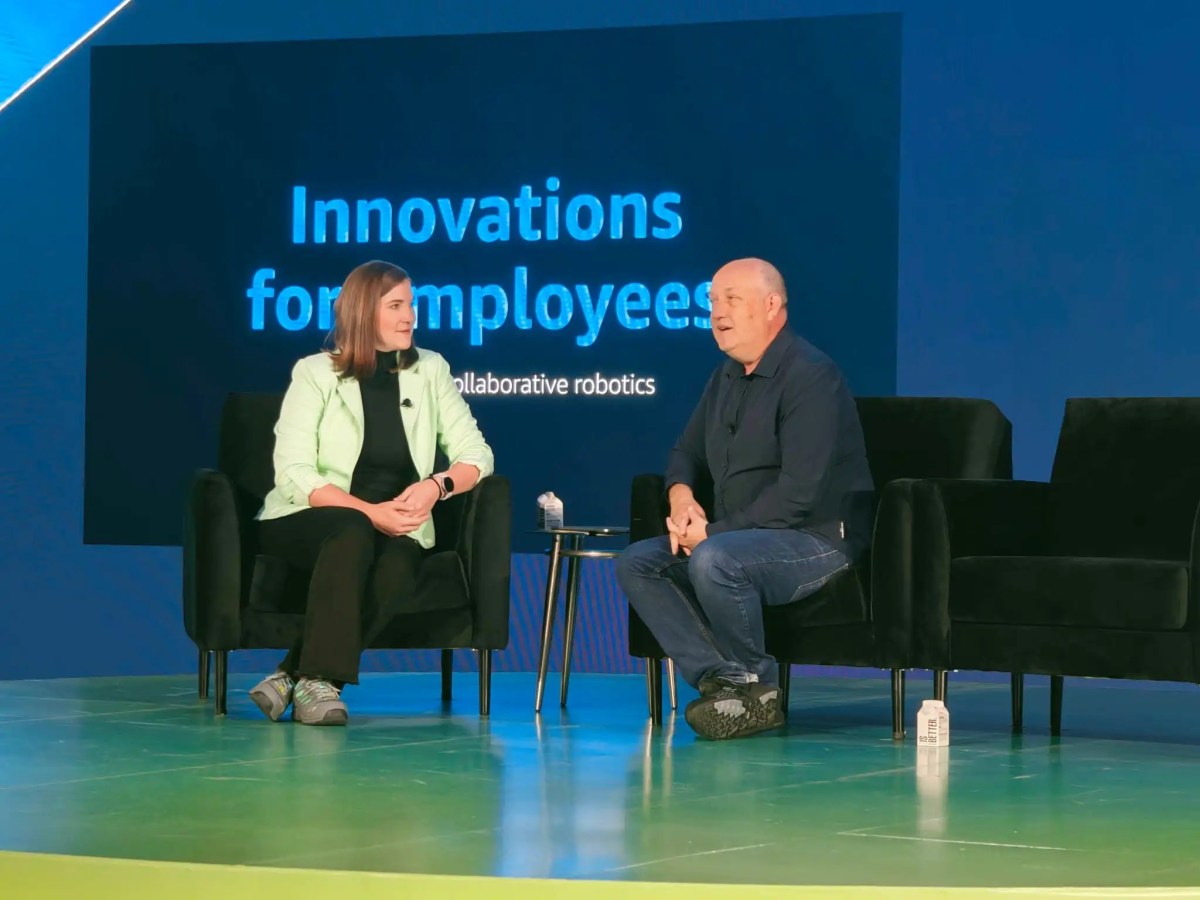Good morning, aspiring leader of the next generation! ☀️
🚀 Here is what you are going to find in The Supercharged today:
OpenAI unleashes the Swarm framework for multi-agent AI networks. It turns out it was stolen from an Open Source Company. Skynet, is that you?
A three-person startup teams up with Yves Béhar to bring humanoids home. Because what every living room needs is a designer robot.
Someone had an AI epiphany about home security. Turns out, Big Brother isn't so bad when he's guarding your smart fridge.
Amazon's Tye Brady spills the beans on next-gen robotic warehouses. Spoiler: humans might become optional.
Africa's biggest AI startup CEO compares biology AI to GPT in 2020. Brace yourselves for the impending DNA revolution.
Director Morgan Neville is ghosting generative AI after the 'Roadrunner' controversy. Hollywood learns the hard way: not all publicity is good publicity.
OpenAI Accused of Stealing 'Swarms' Technology in Multi-Million Dollar Controversy

OpenAI, a leading AI research laboratory, has been accused of intellectual property theft by Swarms Corp, one of its largest customers. The controversy centers around OpenAI's recently released multi-agent LLM framework called "swarms," which Swarms Corp claims is a direct copy of their framework developed over nearly three years.
Key allegations:
Name theft: OpenAI allegedly appropriated the "swarms" framework name.
Code infringement: The implementation is claimed to be copied from Swarms Corp.
Methodology replication: Approach and techniques are said to be lifted from Swarms Corp's work.
Syntax duplication: The structure of OpenAI's framework reportedly mirrors Swarms Corp's.
Swarms Corp's background:
Three years of development on their framework
Over 3,000 commits on their GitHub repository
Claims to be "the most used agent framework ever" with 45 million+ agents in production
Serves major financial, insurance, and health organizations globally
The CEO of Swarms Corp expressed deep disappointment, noting his previous advocacy for OpenAI's models. He suggested this action might indicate OpenAI is "starting to take malicious and selfish actions to grow," possibly due to pressure following their latest funding round.
Despite the serious allegations, Swarms Corp has proposed a resolution: OpenAI could invest in Swarms Corp, thereby gaining rights to the name, methodology, and other desired aspects. The CEO emphasized his aim to "advance Humanity" and continue the partnership to "drive forth the agentic revolution."
Implications of the controversy:
Raises questions about intellectual property in AI
Challenges ethics of large tech companies
Highlights the intense competition in the AI industry
Could impact OpenAI's reputation and potentially lead to legal consequences
This situation underscores the delicate balance between rapid innovation and ethical considerations in AI development. It also highlights the need for clearer guidelines and transparency in the AI industry, especially as collaborations and competitions intensify.
As OpenAI has yet to respond publicly to these allegations, the tech world awaits further developments, which could significantly influence the future landscape of AI development and collaboration.
This three-person robotics startup is working with designer Yves Béhar to bring humanoids home

Kind Humanoid, a three-person robotics startup based in Palo Alto, is developing a robot for home care applications. The company, led by Christoph Kohstall, works with renowned designer Yves Béhar to create a unique, non-human-like robot design inspired by surrealist art.
Kind Humanoid aims to differentiate itself by focusing on the home market rather than industrial applications. The team is developing Mona, a robot designed for tasks like elderly care and helping people age in place. They plan to field test a dozen Mona robots early next year.
The startup operates out of Kohstall's garage, embracing a DIY ethos reminiscent of early Silicon Valley. Despite the modest setting, the team is making progress on prototypes, with recent developments bringing their designs closer to Béhar's renderings.
Kind Humanoid is taking a capital-efficient approach, focusing on innovation rather than aggressive fundraising. Kohstall believes that solving the challenges of creating effective home robots requires experimentation and thoughtful development rather than simply throwing money at the problem.
The company's approach and unique design philosophy set it apart in the increasingly crowded humanoid robot market, with a focus on bringing robots into homes rather than industrial settings.
I Thought I’d Hate AI in Home Security. I Couldn’t Have Been More Wrong

Tyler Lacoma, CNET's home security editor, discusses the positive impact of AI in home security systems. He highlights how AI-powered object recognition and smart alerts have improved the functionality and user experience of devices like video doorbells and security cameras. Key points include:
AI algorithms can distinguish between people, packages, and animals, reducing false alarms and providing more relevant notifications.
These features are now widely available and affordable, with many devices under $50 and AI detection services costing $3-$8 per month.
AI in home security helps reduce anxiety by filtering out unnecessary alerts and providing more accurate information about potential threats.
Privacy concerns remain, particularly regarding facial recognition features, but many companies allow users to opt out of data sharing for AI training.
The integration of AI in home security may serve as a model for incorporating AI into daily life without major drawbacks.
Future developments may include more advanced voice recognition and integration with AI assistants for complex security assessments.
Lacoma concludes that while some privacy concerns persist, the balance of utility, control, and privacy in AI-powered home security is currently positive for users.
📔#1 Insights Today on AI. Click the Links to Read
|
Unleash your AI innovation! Share how you've creatively integrated AI tools, automations, agents, or copilots into your business processes. Each week, we'll select the most inventive use case and reward the winner with a special surprise. Don't forget to include your unique AI journey!
Got a business problem that’s been keeping you up at night? Here’s your chance to get it solved! Share your most staggering challenges with us, and I’ll use the power of AI to find solutions tailored just for you. I’ll feature the answers in one of our upcoming Supercharged issues—let’s tackle it together!
|
AI is not just a technological revolution, it's a cognitive revolution. It's pushing us to reexamine our understanding of intelligence, creativity, and consciousness. In doing so, it's opening up new frontiers in philosophy, neuroscience, and even our conception of what it means to be human.
David John Chalmers is an Australian philosopher and cognitive scientist specializing in the areas of the philosophy of mind, and the philosophy of language. He is a professor of philosophy and neural science at New York University, as well as co-director of NYU's Center for Mind, Brain and Consciousness.
⬆️ ️ Trends: How Businesses Implement AI
AI Revolutionizing the Potato Industry: A Comprehensive Overview

Key Areas of AI Application:
Precision Agriculture:
Soil sensors for monitoring moisture, pH, nutrients
Drones and satellites for crop health monitoring
AI-driven soil health management
Optimized irrigation systems
Pest and Disease Management:
Early detection using image recognition
Predictive analytics for outbreak forecasting
Integration with Integrated Pest Management (IPM) strategies
Supply Chain and Marketing:
Yield and demand forecasting
Logistics optimization
Inventory management
Personalized marketing campaigns
Dynamic pricing models
Future Possibilities:
Automated planting and harvesting
Advanced disease detection at the molecular level
Microbiome monitoring for plant health
Benefits:
Increased efficiency and productivity
Reduced resource use (water, fertilizers, pesticides)
Improved crop quality and yield
Enhanced sustainability
Better decision-making through data-driven insights
Challenges:
Adoption and implementation costs
Need for technical expertise
Data privacy and security concerns
Action Points:
For Farmers: Explore tech partnerships, invest in AI tools
For Industry Professionals: Support AI research, promote adoption
For Students: Study AI applications in agriculture, participate in research
Conclusion:
AI is transforming the potato industry, offering solutions to challenges like climate change, resource scarcity, and evolving consumer demands. Collaboration between farmers, industry professionals, researchers, and students is crucial for harnessing AI's full potential in potato farming.
🙋 Age: What is your age?
⚡ Hands-on: Supercharge With AI Tools
Work smarter, not harder!
Unlock Knowledge Through AI-Powered Conversations
Keak is an advanced AI-powered conversation platform that helps organizations leverage AI to assist in tasks, customer support, and more. Designed to provide streamlined communication solutions, Keak enhances business operations by enabling efficient and intelligent interactions through custom chatbots and automation tools.

How Keak Works:
Define the Workflow
Set Up AI Assistants
Automate Customer Interactions
Track and Improve Performance
Keak's solutions are tailored for various industries, making it an ideal tool for businesses looking to improve customer service and internal communication efficiency.
Visit Keak → Keak
I hope you find these resources helpful. Let me know if you have any questions, if there's anything else I can do to assist you, or what you would like to learn more about in AI.
Have an amazing day!
No more playing catch-up. It's time to GET AHEAD!!! 🚀🚀🚀
🙌🏼
Elena
⚡︎🔋 The Supercharged - loved by thousands of readers ❤️🙋♀️
Did The Supercharged bring you the ultimate satisfaction this week?
The Supercharged is aiming to be the world's #1 AI business magazine and is on a mission to empower 1,000,000 entrepreneurs worldwide by 2025, guiding them through the transition into the AI-driven creative age. We're dedicated to breaking down complex technologies, sharing actionable insights, and fostering a community that thrives on innovation, to become the ultimate resource for businesses navigating the AI revolution.
The Supercharged is the #1 AI Newsletter for Entrepreneurs with 20,000 + readers working at the world’s leading startups and enterprises. The Supercharged is free for the readers. Main ads are typically sold out 2 weeks in advance. You can book future ad spots here.
I'm sending this email because you registered for one of our workshops, or our affiliates brought you. You can unsubscribe at the bottom of each email at any time.






